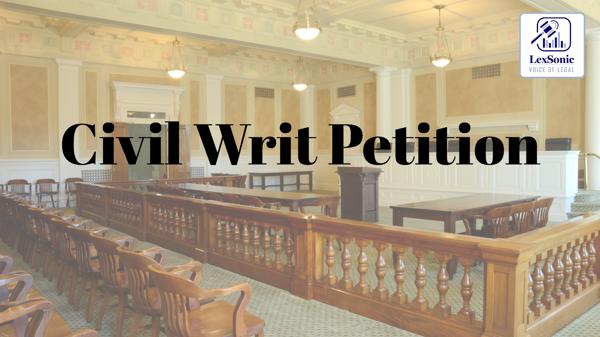In a recent legal battle at the High Court of Judicature at Bombay, the court dismissed a writ petition filed by two individuals, Ashok Sitaram Sonawane and another, who were trying to block the execution of an eviction decree. The case, heard by The Honourable Mr. Justice N.J. Jamadar, sheds light on the critical importance of a properly registered conveyance deed and the scope of an executing court's power in an obstructionist proceeding.
Background of the Dispute:
The case originates from an RAE&R Suit (No. 126/328/1989), where the landlords, Percy Burjor Sarkari and others, obtained an ex parte eviction decree for a room in a building at 4th Marine street, Mumbai, back in 1992. After a prior attempt to execute the decree was obstructed, the landlords filed a second Obstructionist Notice (No. 474 of 2010) against the petitioners, who were identified as "obstructionist Nos. 5 and 6".
The petitioners claimed an independent right to the property, asserting that they were in possession as tenants. This claim was based on a registered tenancy agreement dated November 9, 2006, executed by a man named Kurban Husein M. Pardawala, who they alleged was the rightful owner. Pardawala, in turn, claimed ownership through a Deed of Conveyance dated July 9, 2002, purportedly executed by the landlords' constituted attorney.
Trial and Appellate Court Findings:
Both the trial court and the appellate bench ruled against the petitioners. The core of their reasoning was that the Deed of Conveyance, the very foundation of the petitioners' claim, was not registered. The executing court noted that the deed was not registered because the person who was supposed to execute it, Burjor Sarkari, failed to appear before the Registrar to admit its execution. Since Pardawala's title was never legally conveyed to him, he could not have granted a valid tenancy to the petitioners. The courts concluded that the petitioners had failed to establish their independent right to the premises and were therefore bound by the original eviction decree.
Petitioners' Arguments in the High Court:
Before the High Court, the petitioners' counsel argued that the courts below had erred on several fronts. They maintained that the execution of the Deed of Conveyance was not in dispute, and its lack of registration should not invalidate the underlying sale transaction. Most importantly, they argued that under Order XXI, Rule 101 of the Code of Civil Procedure, the executing court was obligated to fully adjudicate the question of title, not simply dismiss the claim based on the unregistered deed. They cited various judgments, including Sameer Dattatraya Deshpande and others vs. Kishor Shamrao Jadhav, to support the position that an executing court has the authority and duty to resolve all issues of title.
The Court's Analysis and Conclusion:
The High Court acknowledged that the executing court does have a broad mandate under Order XXI, Rule 101 to determine all questions of right, title, and interest. However, the court's analysis went deeper, examining the legal implications of the unregistered conveyance deed. It noted that the Registration Act, 1908, provides a specific legal framework for dealing with a refusal to register a document. The person claiming under such a document can apply to the Registrar and, if necessary, institute a civil suit under Section 77 of the Act to compel its registration.
The court pointed out that neither Pardawala nor the petitioners had taken any of these legal steps to perfect the title based on the unregistered deed. This inaction, combined with the fact that the landlords had already filed a suit challenging the validity of the deed, severely undermined the petitioners' claim.
The court concluded that while the lower courts had addressed the question of title, they had done so by rightfully relying on the principle that a person cannot convey a better title than what they possess. Since the Deed of Conveyance did not legally transfer title to Pardawala, his subsequent tenancy agreement with the petitioners was invalid. The court dismissed the petition, affirming that the petitioners' possession was not based on a lawful, independent right and that the lower courts' rulings were justified.
Registration Act, 1908

